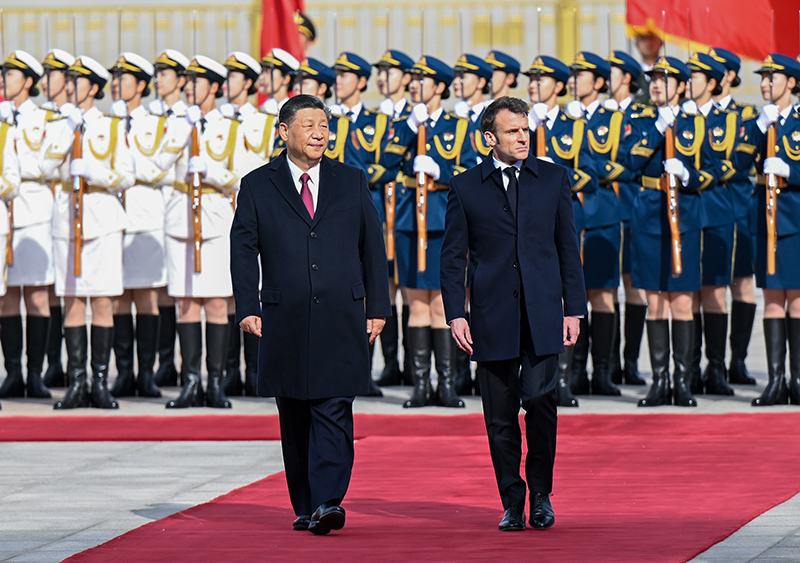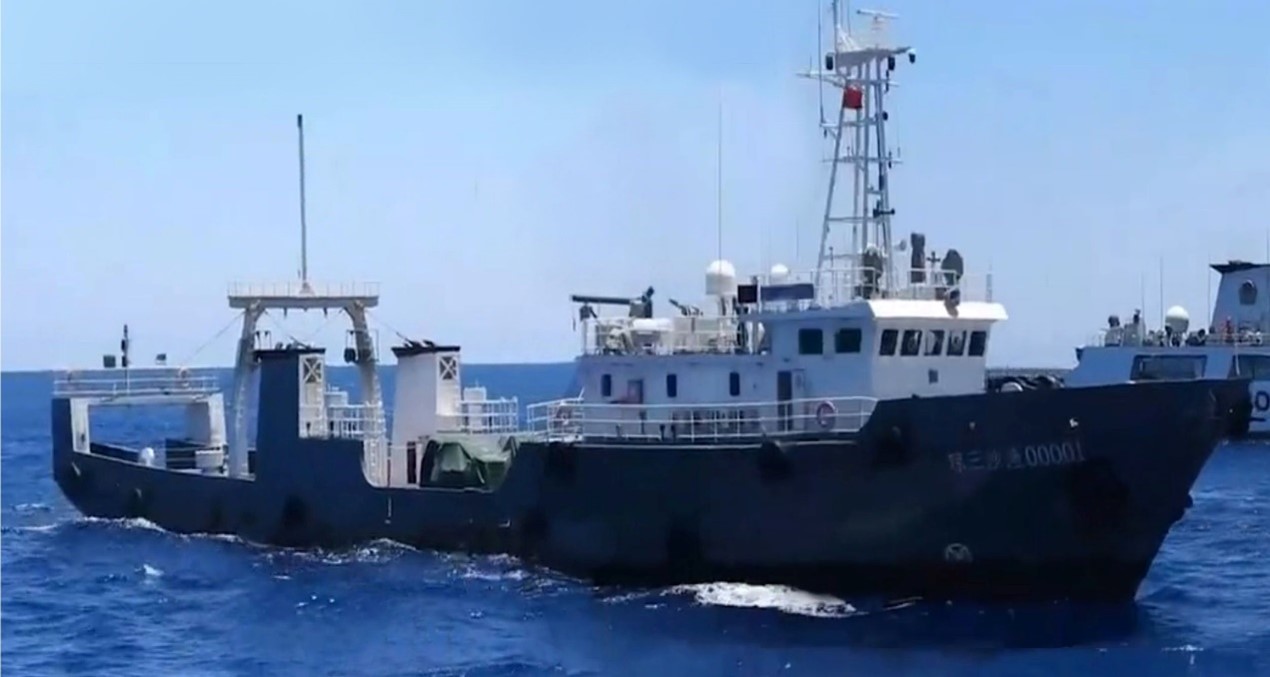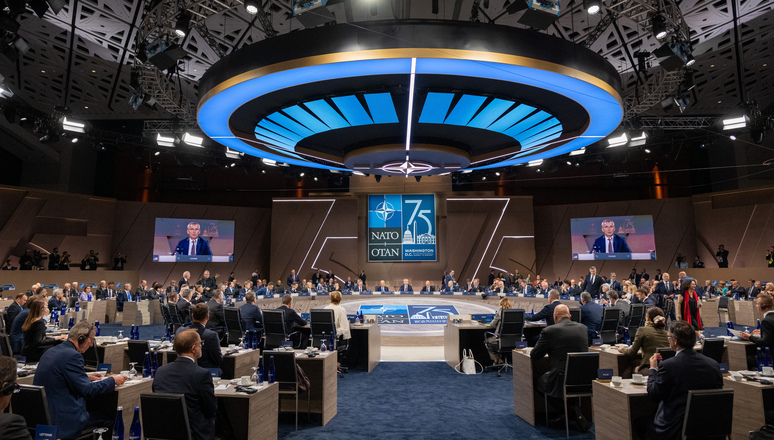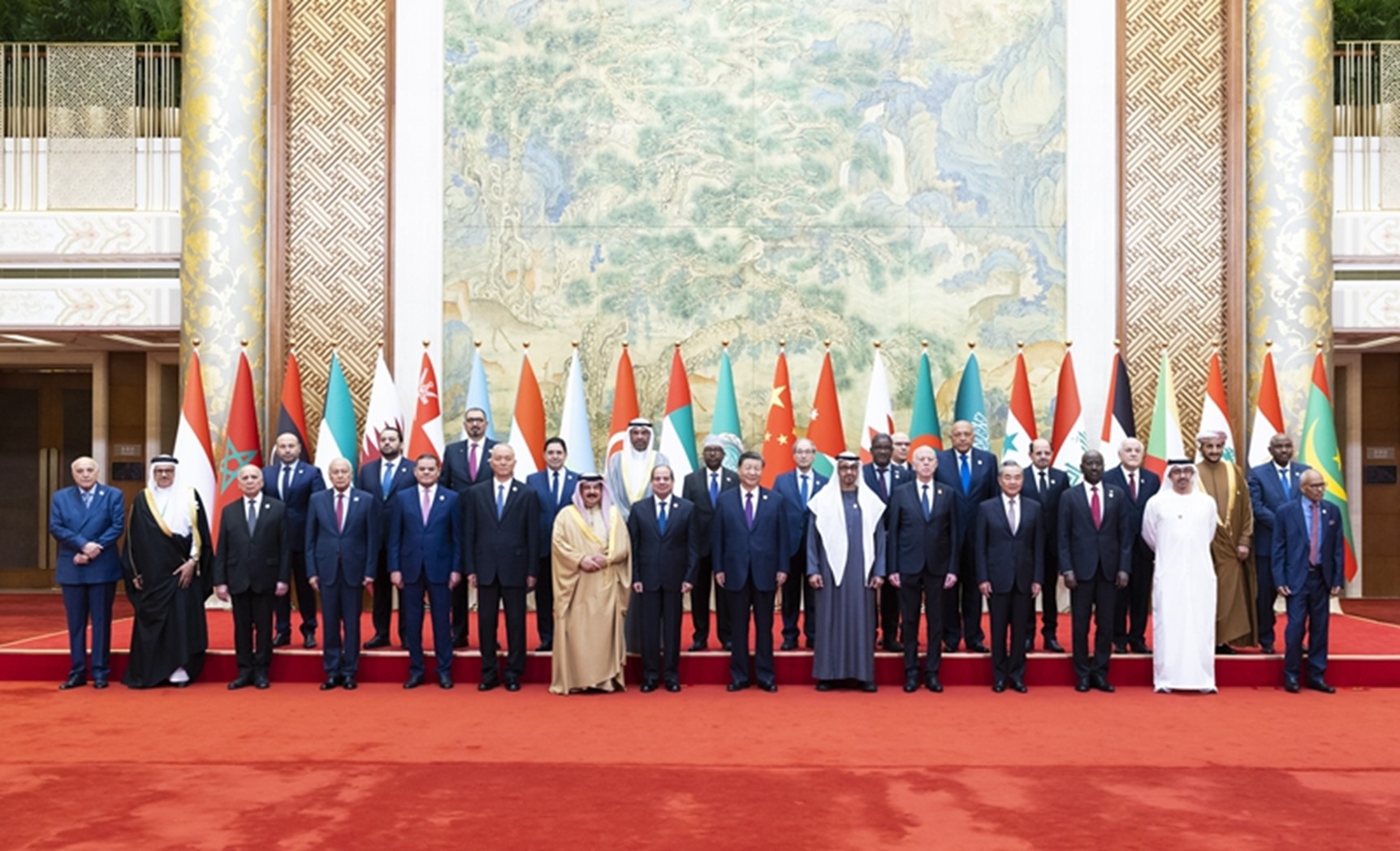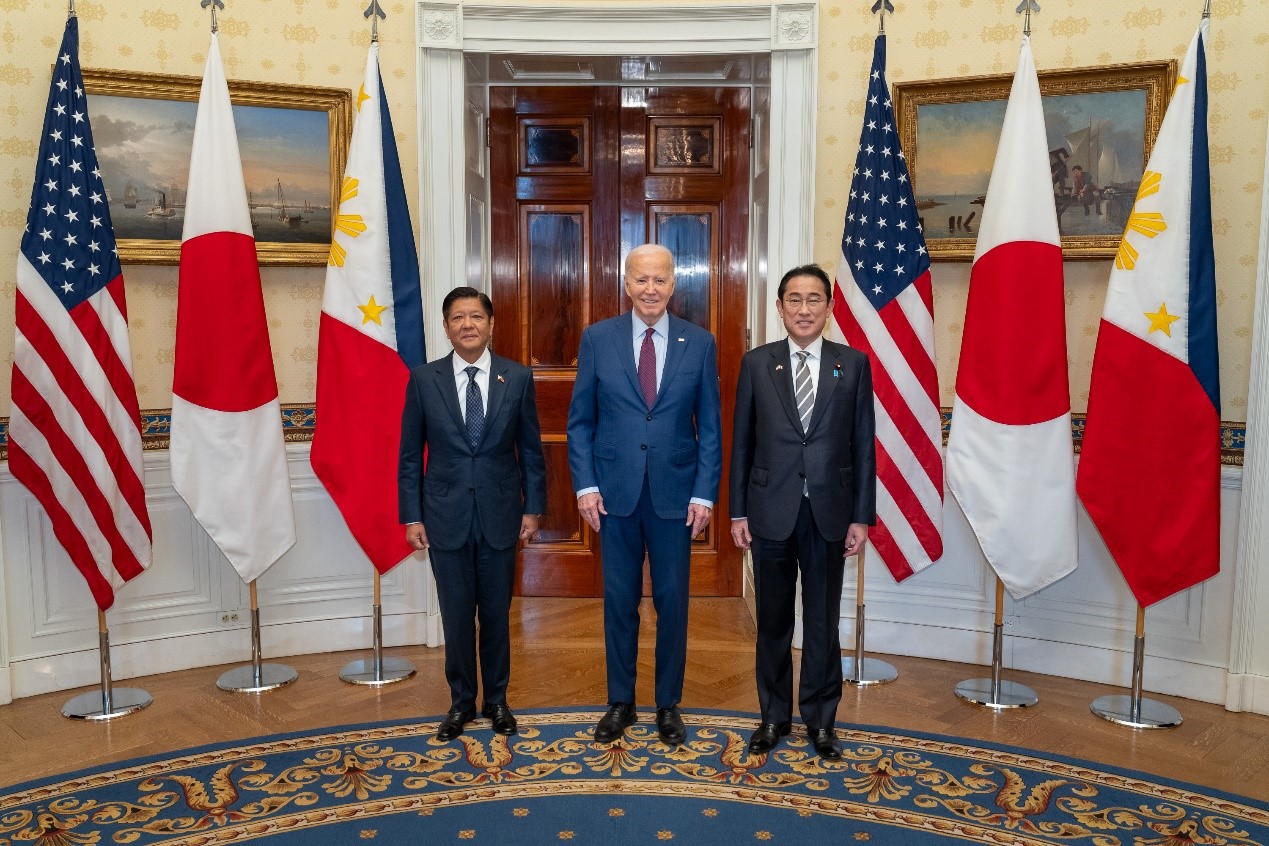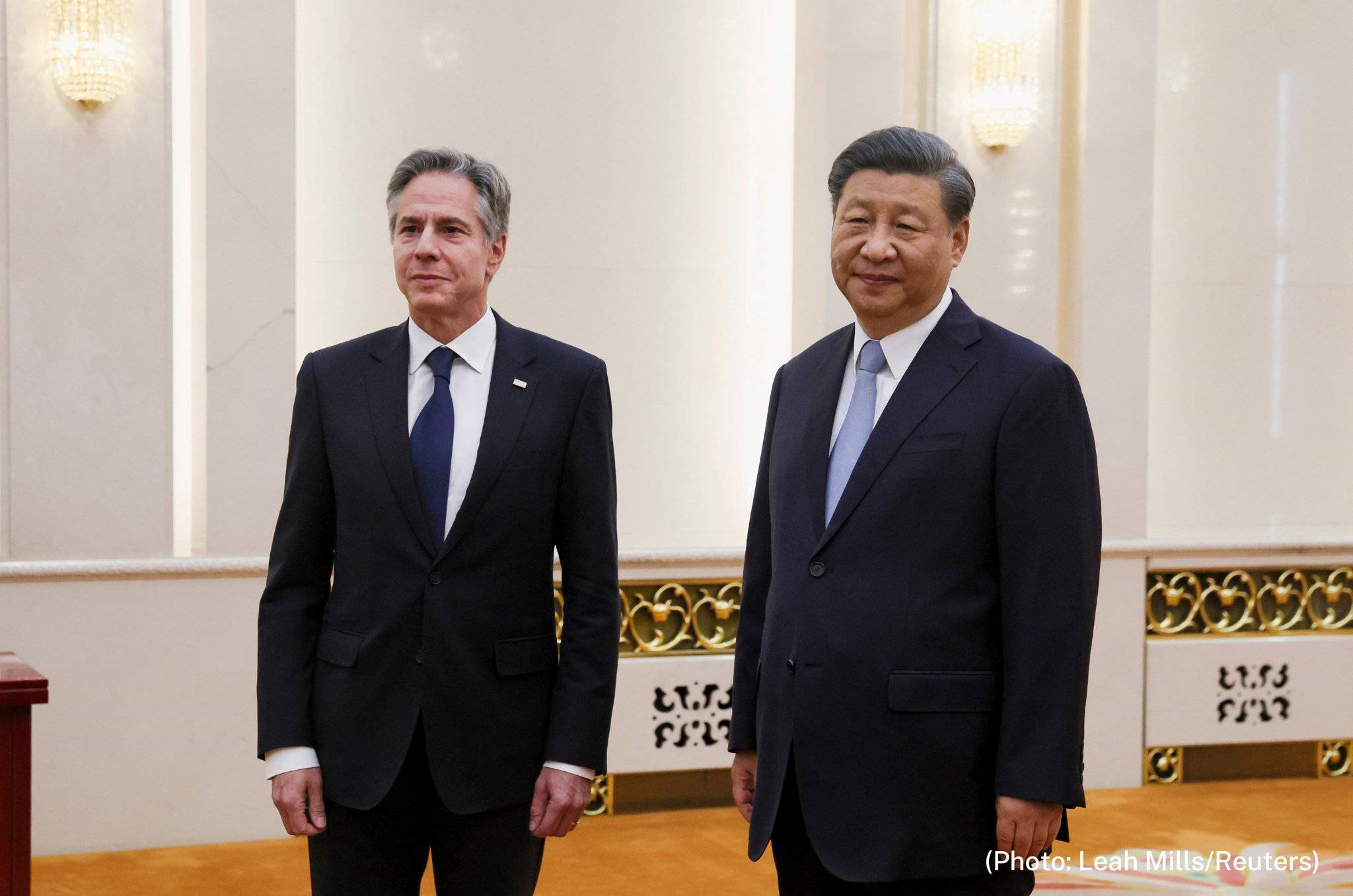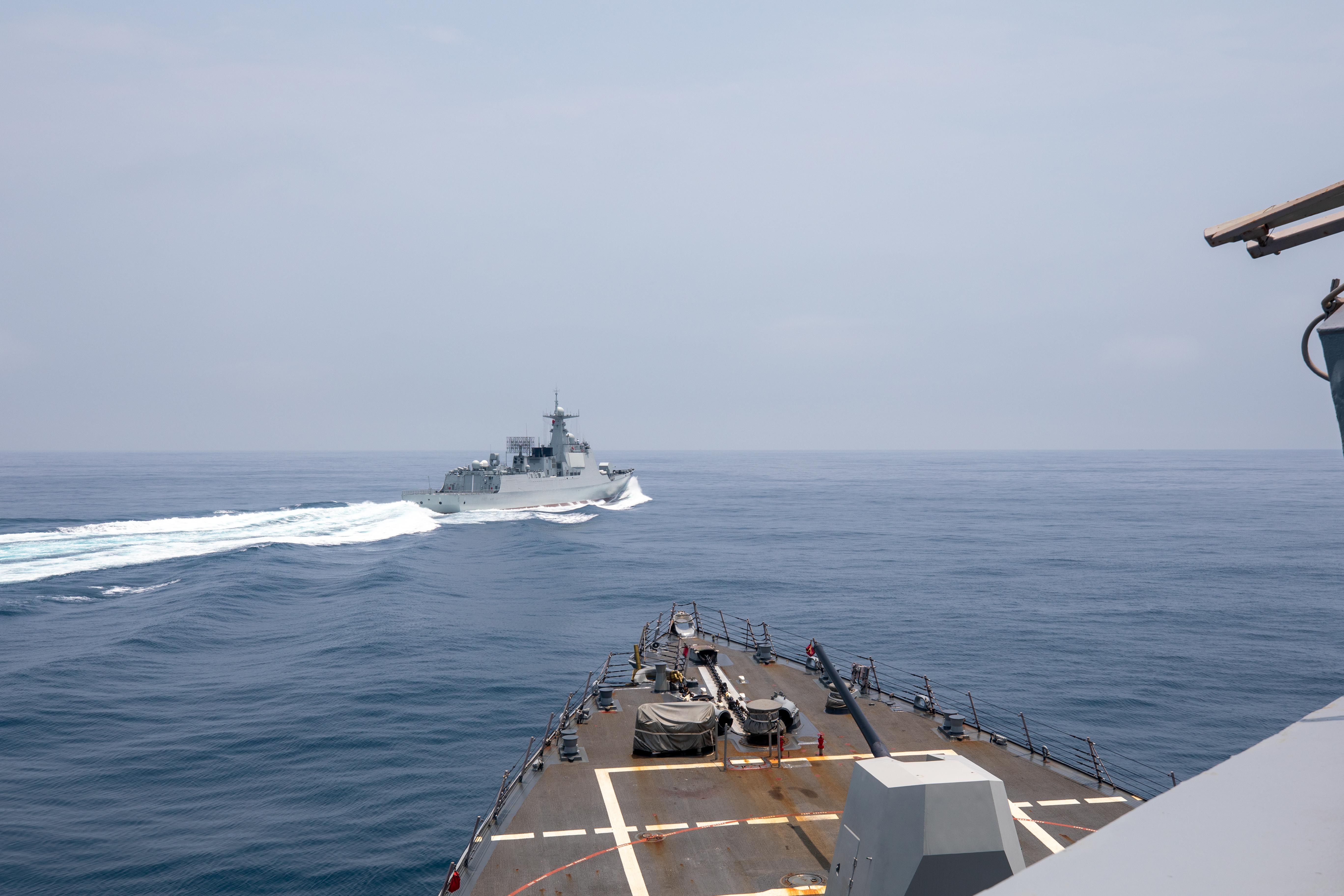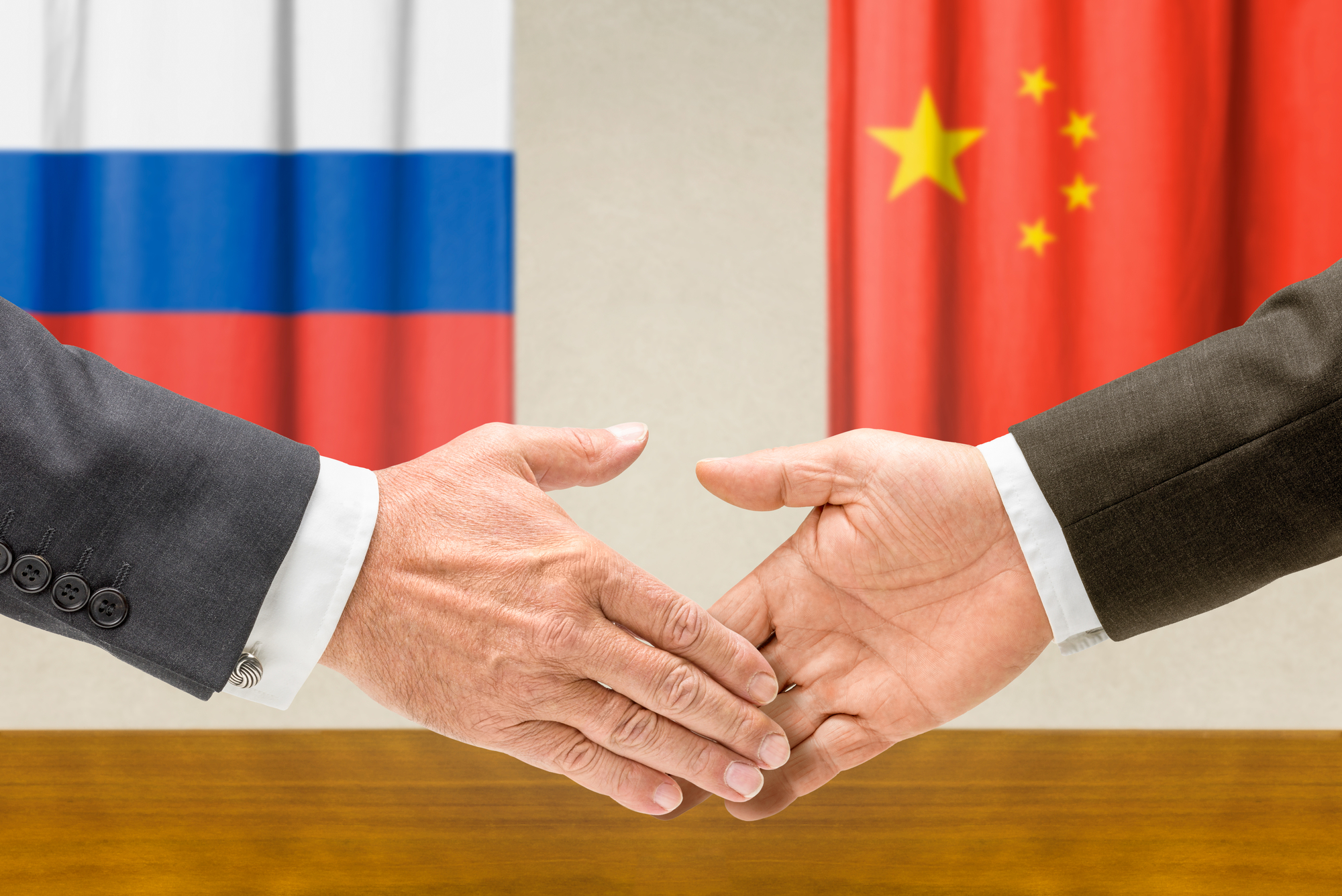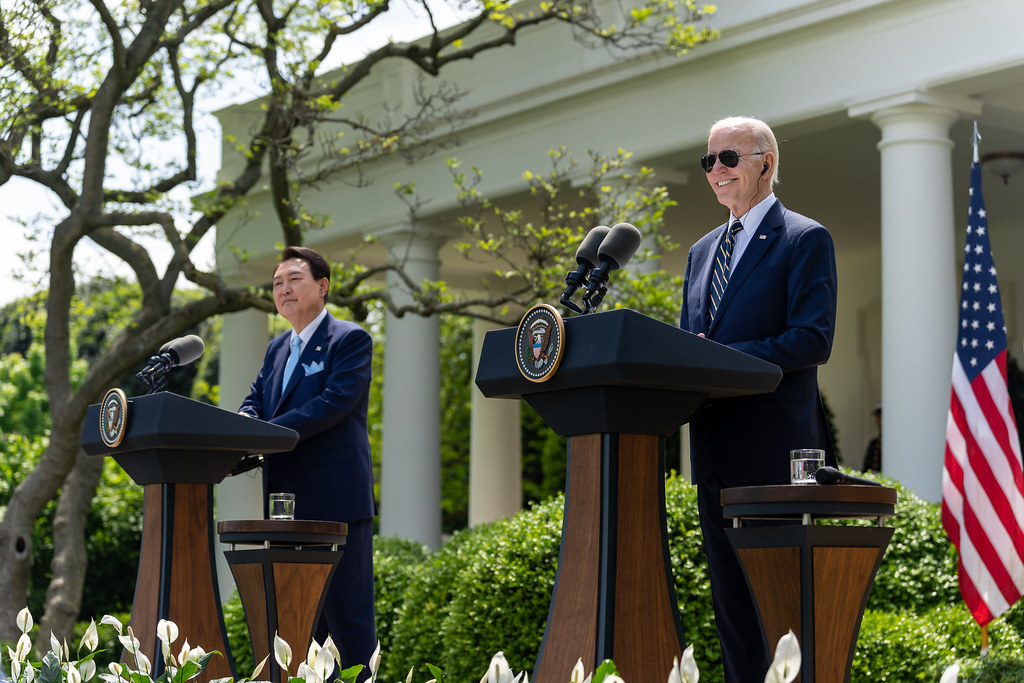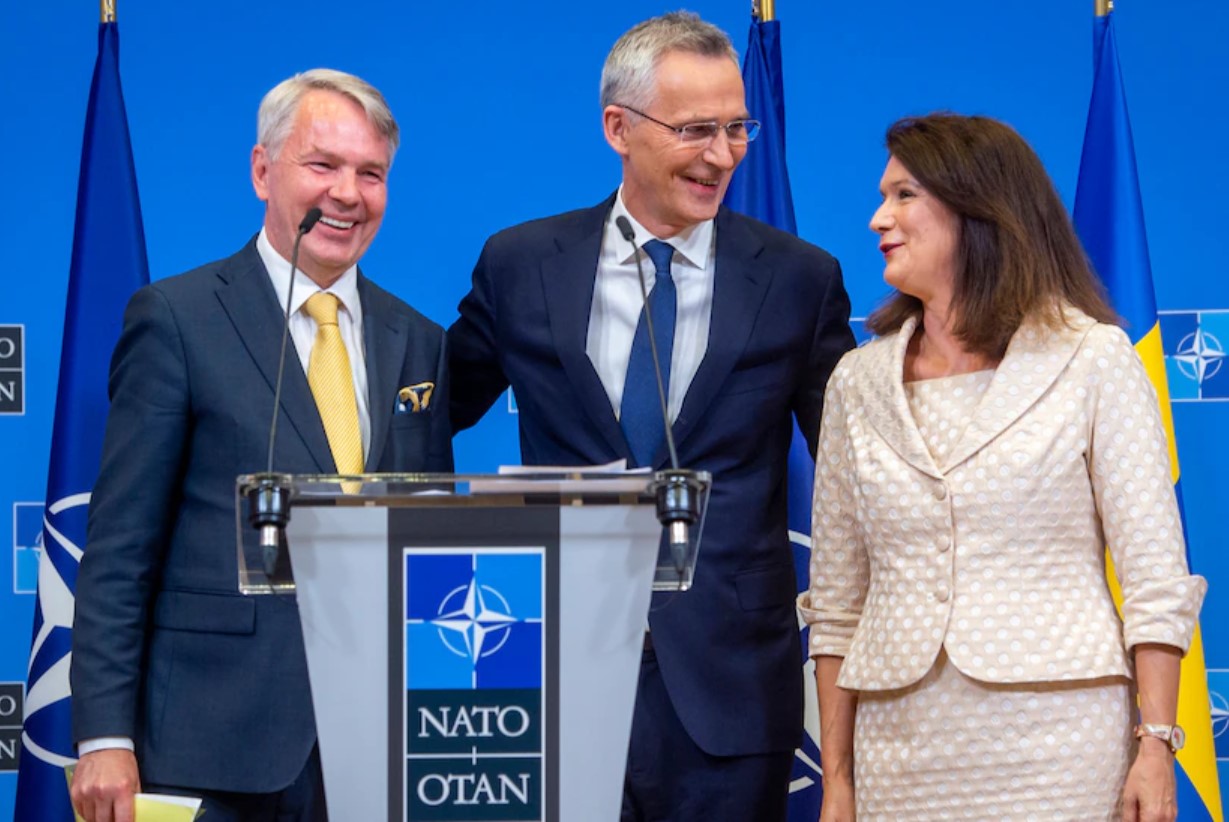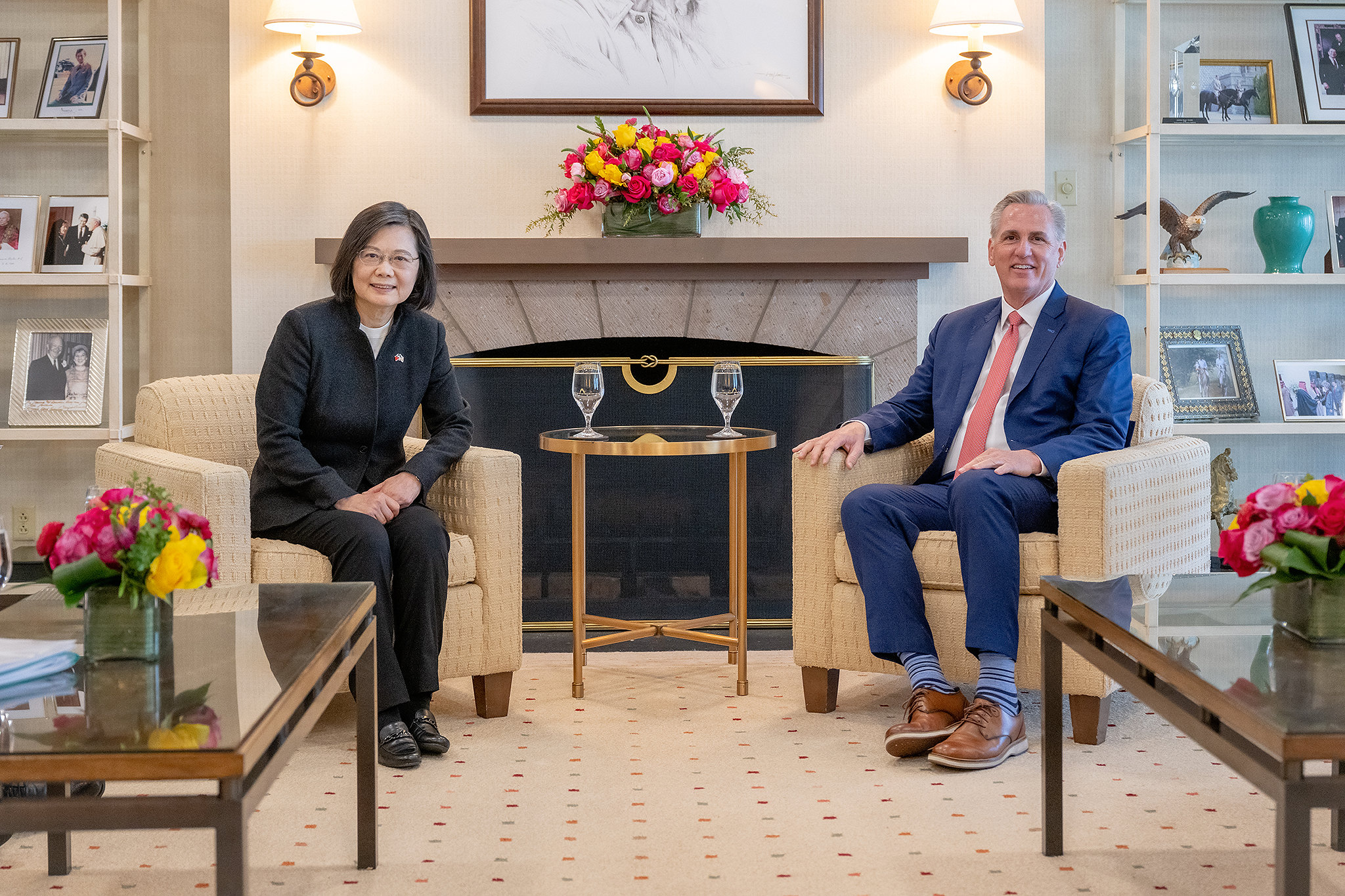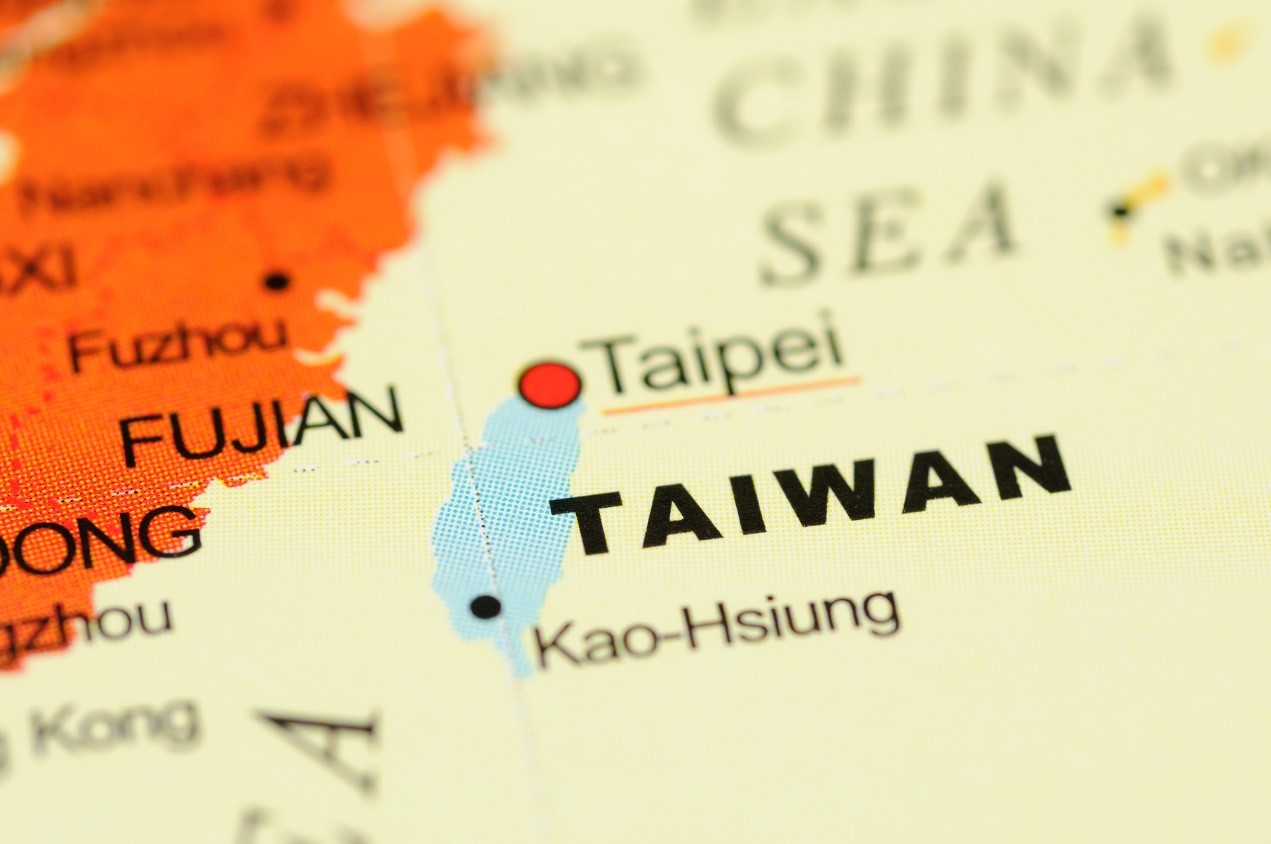Unwelcome Presidential Remarks, but a Clear and Unchanged French Position on the Taiwan Strait
Macron clarified his remarks during a press conference with his Dutch counterpart. Thus, by emphasizing that France and the European Union are for the status quo in the Taiwan Strait and for a peaceful resolution of the issue, while mentioning the coordination between France and the United States and praising the Biden administration’s level-headedness, Macron sought to reassure his partners. Picture source: 謝環馳, April 6, 2023, 《中國政府網》, .
Unwelcome Presidential Remarks,
but a Clear and Unchanged French Position on the Taiwan Strait
By Antoine Bondaz
French President Emmanuel Macron’s state visit to China offered many opportunities, some of them risky if the president’s communication was poorly handled — and it was. On the situation in the Taiwan Strait, Macron’s remarks, which he made not in Beijing but on his return from China, raised concerns among France’s partners. In the Netherlands a few days later, however, Macron clarified France’s position, mitigating the negative impact and underscoring the French position. While concerns are legitimate, it is important to emphasize what France is signing on to and doing in the Taiwan Strait, rather than focusing solely on what the French president says or does not say.
President Macron’s remarks on the plane home triggered strong international reactions, going so far as to question, sometimes abusively, the reality of French policy. On Taiwan, Macron referred in turn to European unity — cooperation and coordination between sovereign states — and Chinese unity — the ambition of one sovereign state to take control of another, without mentioning their difference in nature. Moreover, by speaking of the "American pace and a Chinese overreaction," he gave the impression that he was putting Washington and Beijing on an equal footing, and perhaps even making Washington the main culprit in the tensions. Finally, there was no mention of Taiwan, as if their expectations did not count and they were only a pawn on the world geopolitical chessboard.
The timing of the statement on Taiwan, in an interview with a wider audience on the legitimate issue of European strategic autonomy, was obviously inappropriate. On his return from a state visit to China, the president’s criticism of Washington above all, without doing the same with Beijing, fueled doubts in some circles and made it easier for others who depict France as equidistant, even though its foreign policy demonstrates the opposite. Above all, to make such remarks at a time when Beijing was launching military exercises in the Strait to intimidate Taiwan and was implementing a strategy of continuous military, economic, diplomatic and even informational pressure was clumsy, was not appropriate.
The president has, in spite of himself, played into China’s hands, feeding the Chinese narrative of American responsibility and, above all, by suggesting that France would remain on the sidelines should there be a major crisis in the Taiwan Strait. This does not contribute to the deterrence that is needed to avoid any unilateral change of the status quo by force. Because if there is one lesson that can be learned from the war in Ukraine, it is that deterrence against a likely aggressor may fail. France and the interests of the U.S. do not always fully align, yet they share a same objective that President Macron should have reaffirmed with no ambiguity: maintaining stability and opposing any unilateral change to the status quo by force is a priority.
Fortunately, during his state visit to the Netherlands, Macron clarified his remarks during a press conference with his Dutch counterpart. Thus, by emphasizing that France and the European Union are for the status quo in the Taiwan Strait and for a peaceful resolution of the issue, while mentioning the coordination between France and the United States and praising the Biden administration’s level-headedness, Macron sought to reassure his partners. And while his former remarks will leave their mark, and while a form of ambiguity is recurrent in presidential statements, the clarifications made allow everyone to move forward and return to the fundamentals.
These fundamentals are those of the French position, which has gradually evolved over the last few years. The absence of Taiwan and the Taiwan Strait in French communications, which I had previously regretted, has come to an end. The French president mentioned the tensions in the Taiwan Strait for the first time in his speech to ambassadors in September 2022 and in the presentation of the new military programming bill in January 2023. Until recently, many official documents have avoided mentioning the Taiwan Strait, which was more than paradoxical given that France is an Indo-Pacific power and a permanent member of the UN Security Council. This was the case in the first version of the French Strategy in the Indo-Pacific published in 2021 and in the Strategic Update 2021 of the Ministry of the Army. However, since 2022, tensions in the Taiwan Strait have been mentioned in the updated version of France’s Indo-Pacific Strategy as well as in the National Strategic Review published in November, which explicitly mentions China’s increasingly assertive strategy with regard to the status quo in the Taiwan Strait.
Bilateral and multilateral statements mentioning the Taiwan Strait have also multiplied. In December 2022, the joint Franco-American declaration following President Macron’s state visit to Washington stressed that "the two presidents reaffirmed the importance of maintaining peace and stability across the Taiwan Strait. Similarly, in March 2023, the joint Franco-British declaration added that "France and the United Kingdom call for a peaceful resolution of cross-strait issues.” In the framework of the so-called 2+2 dialogues of foreign and defense ministers, whether in January 2022 in the Franco-Japanese format or in January 2023 in the Franco-Australian format, the need to maintain stability in the Taiwan Strait was explicitly mentioned. Beyond that, whether at the level of the EU or the G7, the declarations are explicit and France is obviously a signatory, whether it be the G7 Foreign Ministers’ Statement on Preserving Peace and Stability Across the Taiwan Strait of August 2022 or the G7 Foreign Ministers’ Communiqué of April 2023.
Following the unfortunate remarks by the president on the plane in early April, the French Foreign Ministry has multiplied its explicit signals on the Taiwan Strait as never before. Minister Colonna conducted several interviews, including for foreign media such as Japanese television NHK, in which she talked about the Strait. This was also the case in her speech on the Indo-Pacific in South Korea on April 15. Even in the Franco-American format, France’s position was reiterated by Deputy Secretary Sherman’s call with French Foreign Ministry Secretary General Descôtes in a telephone exchange. The French Office in Taipei has stepped up its communications, including on social networks, to reiterate France’s position. Other civil society actors, including French parliamentarians, also played a role. This is the case of the delegations of deputies and senators who visited Taiwan in April 2023, led by deputy Bothorel and senator Richard, who explicitly recalled the French position.
Finally, France should be judged by its actions, and on this point, France has accounted well for itself. Despite Chinese criticism, such as in April 2019 when Beijing openly criticized France for "illegally crossing" the Taiwan Strait, regular deployments by the French Navy allow Paris to reaffirm that the freedom of navigation and overflight, as well as the right of innocent passage provided for by the United Nations Convention on the Law of the Sea (UNCLOS) must be exercised without hindrance. In October 2021, the French Navy’s main intelligence-gathering vessel, the Dupuy-de-Lôme, transited the Taiwan Strait, which was confirmed by the Minister of the Army at a Senate hearing. And in March 2022 and April 2023, the frigate Vendémiaire and Prairial, respectively, transited the Taiwan Strait. To date, France is the only EU member state to have made regular passages through the Strait. France is also keeping its word and, despite the absence of new arms contracts, is honoring contracts awarded in the early 1990s for Lafayette frigates and Mirage 2000 fighter jets. This is the case, for example, with the contract awarded in April 2020 for the modernization of the DAGAIE decoy launcher system on Taiwanese ships.
France’s position certainly isn’t perfect. Paris could and should do much more with its partners, especially European ones, to contribute to maintaining stability in the Taiwan Strait, as I reminded the European Parliament at a hearing recently on March 22. And it is obvious that the words of the French president are sometimes unwelcome because they create unnecessary doubts among our partners. However, despite the legitimate emotion, it is essential that we keep in mind the reality of France’s position which, although imperfect, is clear on the imperative need for French interests to maintain stability in the Taiwan Strait.
(Dr. Antoine Bondaz is the Director of the Indo-Pacific Observatory and of the Taiwan Program at the Paris-based Foundation for Strategic Research)
Editor’s Note: The views expressed in this publication are those of the authors and do not necessarily flect the policy or the position of the Prospect Foundation.


